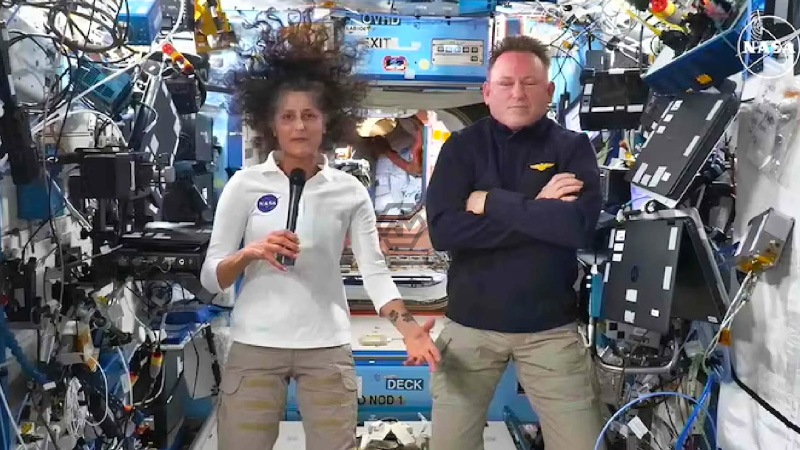- NASA has expedited Sunita Williams and Butch Wilmore’s return from the ISS.
- SpaceX Crew-9’s Dragon capsule will bring them home by mid-March.
- The unexpected delay extended their stay in space to eight months.
NASA has announced that Sunita Williams and Butch Wilmore will return to Earth earlier than expected, ending their extended eight-month stay aboard the International Space Station.
This adjustment follows a series of delays that left them aboard the ISS for longer than planned. NASA typically ensures crew replacements before sending astronauts home, and Crew-10’s upcoming mission will facilitate their return.
NASA Adjusts Plans for Sunita Williams’ Safe Return from ISS
Sunita Williams and Butch Wilmore, who launched with Crew-9 in September, were initially scheduled to return in late March or April. However, NASA has expedited their return by mid-March following adjustments in the flight schedule. SpaceX will launch its next crew using an older Dragon capsule to facilitate their departure.
This change comes after NASA faced challenges in aligning crew rotations due to delays with Boeing’s Starliner. Typically, NASA ensures a new team arrives before bringing astronauts back. Crew-10, which includes two NASA astronauts, one Japanese astronaut, and one Russian cosmonaut, will replace the departing crew.
Spaceflight remains unpredictable, with technical adjustments and scheduling conflicts impacting mission timelines. NASA’s decision to switch capsules ensures operational efficiency while prioritizing astronaut safety. Wilmore and Williams’ return will allow for a smoother transition as the ISS continues its routine missions.
Former U.S. President Donald Trump and SpaceX CEO Elon Musk also expressed support for accelerating their return. While their influence remains unclear, NASA has worked “expeditiously” to bring back the duo amid operational changes.
The revised plan marks the end of an unexpectedly extended mission for Sunita Williams and Butch Wilmore. Their safe return aboard SpaceX’s Dragon capsule will pave the way for the next crew rotation and ongoing ISS operations.
“Human spaceflight is full of unexpected challenges.” — NASA Program Manager



